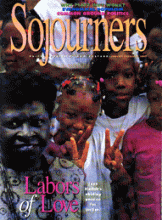Throughout most of American history, democracy depended for its vitality on the sense that people created it. The notion that government was "the people's" was expressed in the idea that America was a commonwealth. Today, America is in danger of dismantling even the idea of public things. Market efficiency and privatization are watchwords throughout government. Citizens have been redefined as consumers of government services. Political campaigns resemble the selling of toothpaste.
In stark contrast, the commonwealth conveyed a view of democracy as the creation of the whole people, whose efforts wove together an overarching unity from a vast multiplicity of cultures, backgrounds, and interests. Today, we need a revival of a commonwealth understanding of politics that values the well-being of the whole and that sustains public goods of many kinds.
There is much discussion of strategies for progressive politics. Should there be a new party, free of special interest ties? What is the relationship between electoral politics and organizing? But the larger question is how to regenerate a democratic movement within varied sectors and institutions in America, in which citizens once again take on strong identities as "producers" of the commonwealth and government is grounded in the life and work of the people.
During the 1996 presidential election, on both sides of the aisle, the momentum was overwhelmingly toward protecting private wealth, not building commonwealth. But here and there political leaders articulate a commonwealth approach. This is the perspective of Elizabeth Kautz, mayor of Burnsville, Minnesota.
Read the Full Article
